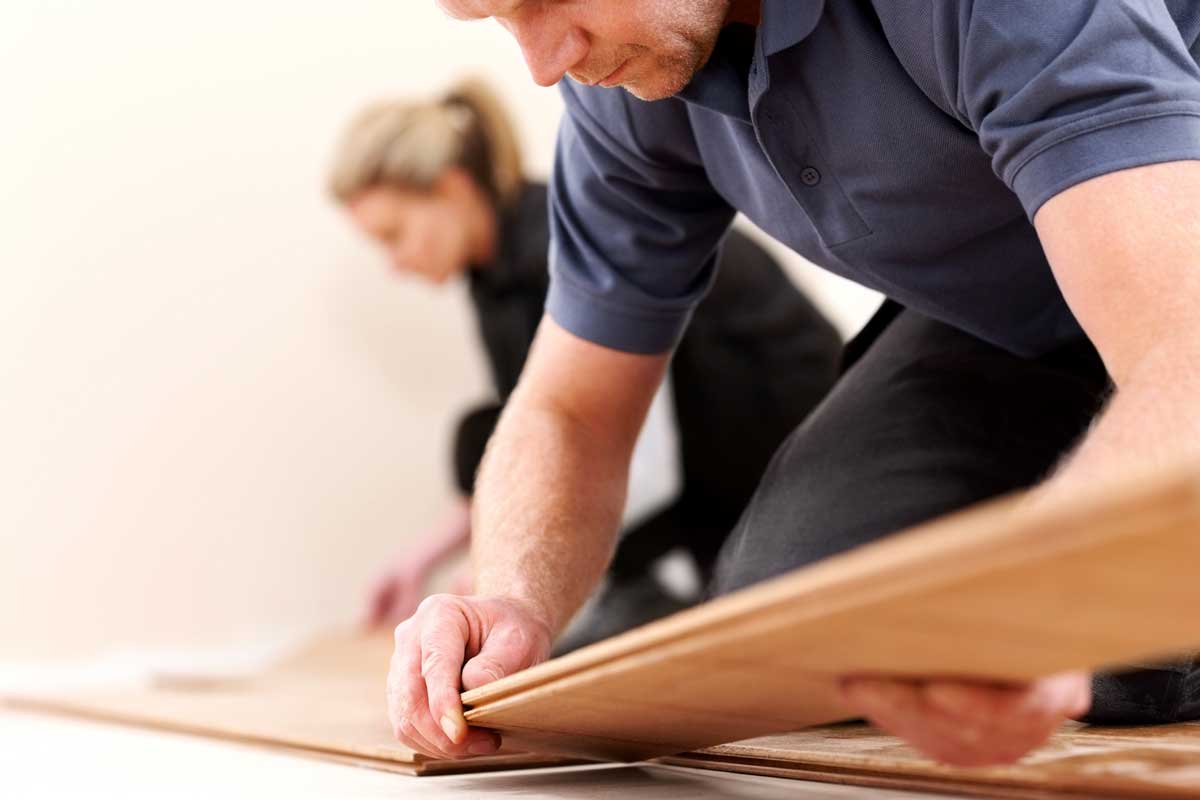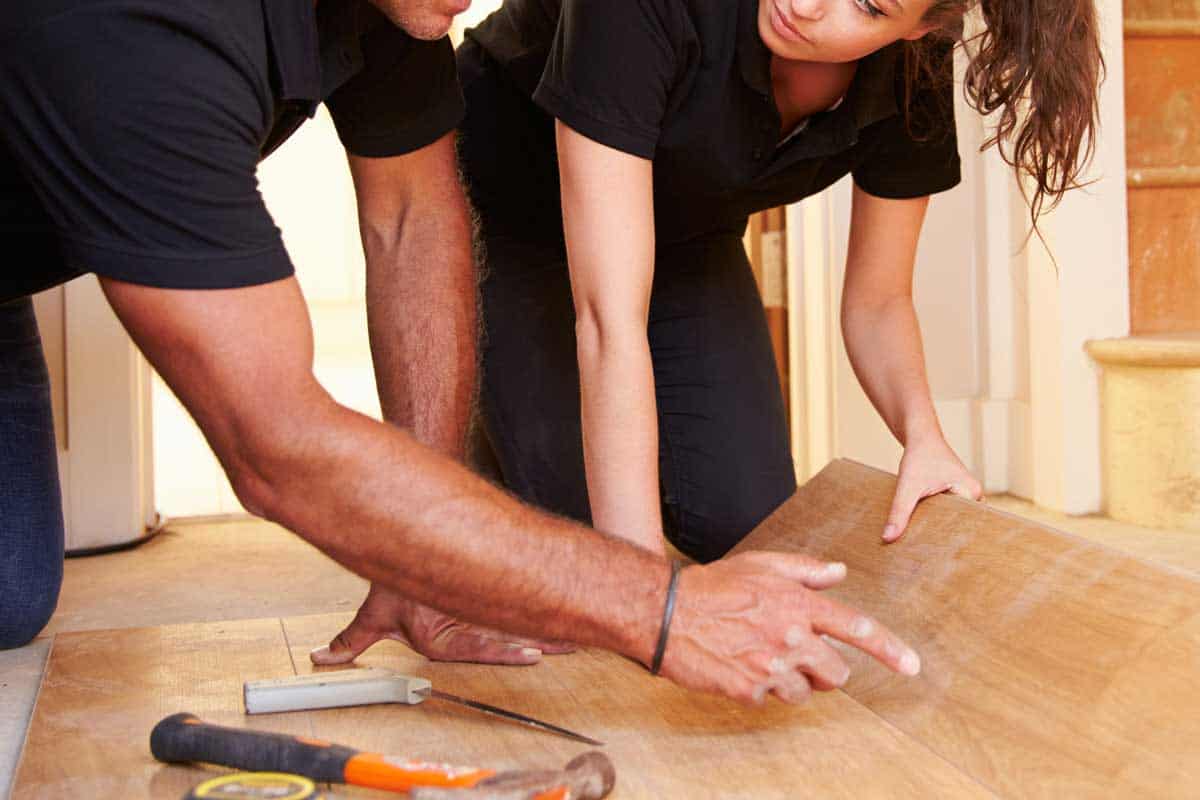Picture this: you just had a nice new floor installed. The lead installer comes to let you know the job is done but before they leave there is an awkward pause. Do you have to tip them?
You do not have to tip floor installers or refinishers. If you're feeling generous, they are usually allowed to accept tips, but it is not mandatory or expected. If the installers do an exceptionally good job and you would like to tip them, then $10 to $30 per day is a suitable range.
However, like everything in tipping, there is a bit more to it than that. Let's take a closer look at tipping installers, how much it costs, and how to prepare. Just keep reading!

Should You Tip Floor Installers And Refinishers?
You do not have to tip floor installers, but it is a nice gesture. Since floor installers are skilled laborers, they have usually received some training. They are typically paid adequately for their services. However, unless the company has a "no tipping" policy or a tip built into the fees, most installers accept. You might even make their day.
If you feel the need to tip, then $10 to $30 per day is a good range. If there is not a lead installer or it is a big group, you can also split up the amount and do around $5 per person per room or day.
Some people suggest tipping a total of 10% to the group, but if it is a big job, 10% can be a lot. Especially with an already expensive job. Take into account how much work and clean up they did as well as if you think they did an above-average job. If you want to tip, then go ahead and tip.
An alternative option to tipping would be to leave a good review. This is especially helpful if you know the names of those who installed your flooring. This helps the company know that an individual is doing a good job. It may even help them qualify for a raise or bonus. Likewise, leaving a review helps other people know what they can expect from the company.
How Much Does Flooring Installation Cost Per Square Foot?

The overall average for floor installation is $5 to $10 per square foot. Carpet is normally the cheapest of the options and, on average, can be $1 to $4 per square foot to install. The most expensive floors to install are generally anything involving wood. Engineered wood is usually the most expensive and costs around $20 per square foot to install.
Hardwood costs on average $12 to $17 per square foot. Laminate costs from around $7 to $10 per square foot. Ceramic tile usually only costs around $3 per square foot to install. At some places it may be cheaper than carpet, depending on the availability and quality. However, porcelain tile can cost up to $10 per square foot on average.
All in all, you can expect to pay anywhere from $1,500 to $5,000 to have the flooring installed in a moderately-sized room.
Some factors that impact how expensive it is to install flooring include:
How Much Does It Cost To Refinish Hardwood Floors?
Factors that go into how much it costs to refinish hardwood are similar to what impacts the cost of floor installation. The primary cost with hardwood floors is specifically the materials. It can be costly to find quality hardwood. Likewise, contractors may charge a premium price for refinishing.
How Can I Save Money on Floor Installation?
Let's take a look at four ways you can save money on floor installation.
Do It Yourself
Depending on the size of the room and your skill level, you can consider installing the floor yourself. Some people will take the plunge and install a hardwood floor themselves to cut on costs, but it can take more time.
You could also install a floating floor instead. Floating floors are, in essence, flooring pieced together but not glued down. So they are generally much easier to install by yourself and are normally cheaper.
Buy Your Supplies
Buying your own supplies is a great way to save money, but it can be a bit tricky. Make sure you do not compromise too much on quality to get a good price. The quality of wood can impact installment time, so contractors may refuse if it is not to their standards.
Polyurethane is probably one of the easiest and most efficient supplies to buy yourself. There are several kinds you can buy for a fair price on Amazon and save yourself a pretty penny. It is all shipped right to your house to boot!
Bona Mega Wood Floor Finish


Click here to see this product on Amazon.
Rip Up The Carpet
When installers arrive, one of the first things they have to do is remove the previous flooring. If you do this for them, most contractors will give you a discount. Not all contractors do this though, so make sure to check with them first.
Schedule In The Winter
For one reason or another, most people replace their floors in the summer. So replacing your floor in the winter usually means cheaper material prices due to lower demand. Likewise, some contractors need work and are willing to give you a discount during the winter months, too.
How Long Does It Take To Install Floors?
On average, it takes a two-man team 1 to 3 days to install a hardwood floor. The size and shape of the space have the biggest impact on this. If you are installing the floor yourself, your skill level will also impact the time it takes.
The primary steps involved in installing hardwood floors yourself are:
1. Choosing
Choose the flooring you want to use and the method you want to use to install it.
2. Preparing
Prepare the space by ripping up the previous flooring and buying all the necessary materials.
3. Installing
Install the floor using your method of choice. Glue-down, nail-down, and staple-down are the most popular. The so-called locking, interlocking, or click-lock installation is also becoming popular. This method is where the pieces lock together and minimal hardware is required.
Do Floor Installers And Refinishers Move Your Furniture?
Technically, no, floor installers and refinishers will not move your furniture. But, if you do not move the furniture beforehand they will usually move it and charge you extra. This sometimes comes out in extra hourly fees but most often is simply an additional fee.
The easiest way to save on this expense is to move the furniture to another room while the floors are being done. If you do not want to or are unable to move the furniture yourself, then you can ask the company how much they charge for moving furniture. That way, you know beforehand what they are going to charge rather than getting a surprise fee at the end.
Do You Tip Carpet Installers?
No, you do not tip carpet installers. Like floor installers, carpet installers are usually skilled laborers. They are typically getting adequately paid for their work. As long as their company allows it, offering a tip of $10 to $30 per day could be a way to show you appreciate their hard work. However, a tip is not required or expected.
If an employee had to move your furniture or do something similar, that may also be a good reason to tip. Otherwise, it's just a nice thing to do and you will certainly give them a reason to smile.
Also, check your bill. Some companies may include a tip built into the fees, but it is not common.
In Closing

While tipping floor installers and refinishers certainly isn't expected, it's a thoughtful gesture. We hope this guide helped give you some clarification on your tipping habits!




